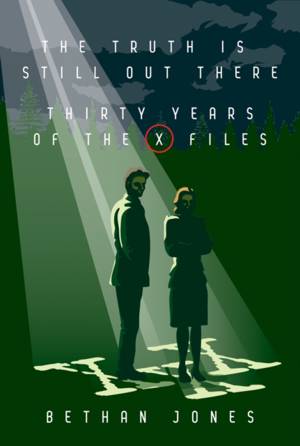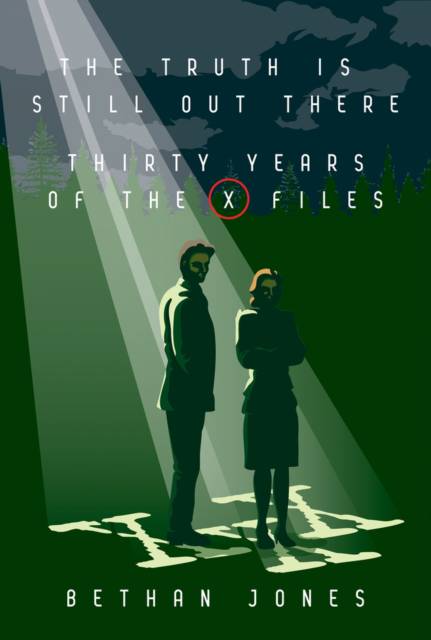
En raison d'une grêve chez bpost, votre commande pourrait être retardée. Vous avez besoin d’un livre rapidement ? Nos magasins vous accueillent à bras ouverts !
- Retrait gratuit dans votre magasin Club
- 7.000.000 titres dans notre catalogue
- Payer en toute sécurité
- Toujours un magasin près de chez vous
En raison de la grêve chez bpost, votre commande pourrait être retardée. Vous avez besoin d’un livre rapidement ? Nos magasins vous accueillent à bras ouverts !
- Retrait gratuit dans votre magasin Club
- 7.000.0000 titres dans notre catalogue
- Payer en toute sécurité
- Toujours un magasin près de chez vous
30,95 €
+ 61 points
Format
Description
X-Phile/scholar Bethan Jones reassesses the cultural significance of the phenomenally successful TV series The X-Files, paying special attention to the evolving nature of conspiracy theories and disinformation campaigns over the thirty years since the show's premiere. In September 1993, a TV show like no other appeared on our screens, asking us to consider the essence of truth and belief, to think about the nature and roles of science and humanity, and to question what we were told by those in power. Combining horror, science fiction, drama, crime, and comedy with cinematic filmmaking, The X-Filestransported the paranoia of the sixties and seventies to the technologically savvy nineties as it followed two iconic characters, FBI Agents Fox Mulder and Dana Scully, in their labyrinthine pursuit of truth. Further, The X-Files reversed conventional television gender roles: Mulder was our believer in the paranormal, chasing down clues in search of his abducted sister; Scully was the skeptic, a scientist preaching rationality and objective truth. Now, thirty years later, the nature of conspiracy theories may have changed, but the anxiety surrounding them has not. In an era in which Watergate has been replaced by Gamergate and conspiracy theorists blindly embrace the myth of a stolen election and maintain that an all-powerful cabal of Satanic Democrats--defeatable by only one man--is preying on children, The X-Files remains as relevant as ever, if not more so. Conspiracy theorists are no longer on the fringes of society; they sit in halls of fame, in corridors of schools and universities, and at the heart of government, and The X-Files reflects these apprehensions back at us. Part love letter, part history, part analysis, The Truth Is Still Out There: Thirty Years of The X-Files examines the social, cultural, and technological impact of the show. Using big ideas from philosophy, sociology, and cultural studies and topical issues such as #MeToo, QAnon, and artificial intelligence, the book highlights how and why The X-Files became a global phenomenon. Drawing on both her own fandom and her academic research, Bethan Jones analyzes the original nine seasons as well as the two feature films and the revival series to explore how the show helps us think about the most provocative questions of our time.
Spécifications
Parties prenantes
- Auteur(s) :
- Editeur:
Contenu
- Nombre de pages :
- 198
- Langue:
- Anglais
Caractéristiques
- EAN:
- 9781949024500
- Date de parution :
- 24-08-23
- Format:
- Livre broché
- Format numérique:
- Trade paperback (VS)
- Dimensions :
- 152 mm x 229 mm
- Poids :
- 260 g

Les avis
Nous publions uniquement les avis qui respectent les conditions requises. Consultez nos conditions pour les avis.






